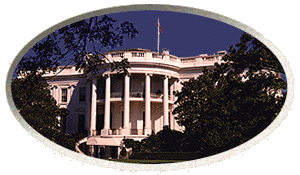September 7, 2001

Graphic courtesy of CNN.com
Balanced budget may require $10 billion from
Social Security
WASHINGTON (CNN) -- Despite White
House and congressional vows not to touch the Social Security surplus, budget
projections now show the federal government may have to do just that -- to
the tune of at least $10 billion, CNN has learned.
Sources say White House budget director Mitch Daniels briefed Republican leaders
on Friday about new budget projections that show the government may have to
borrow from the surplus to cover at least $10 billion, and possibly as much as $15
billion, in spending in the current fiscal year, which ends September 30.
Less than a month ago, the White House estimated that the government would avoid
dipping into the retirement fund money this year. The Congressional Budget Office,
however, then estimated that $9 billion in Social Security funds would be used this
year.
President Bush met in the Oval Office with the Republican leaders -- House Speaker
Dennis Hastert, R-Illinois, and Senate Minority Leader Trent Lott, R-Mississippi --
after the two lawmakers were briefed by Daniels, the sources said. Afterward, Bush
went before the cameras to urge support for his economic plan.
Friday brought more bleak news about the state of the nation's economy. New
statistics from the Labor Department showed that unemployment rose to 4.9
percent of the work force, the highest rate in four years.
The news served to intensify the partisan feud over the government's finances. As
Bush pressed his case for economic blueprint, Democrats sharpened their criticism.
Backed by Vice President Dick Cheney, along with Hastert and Lott, Bush emerged
from the White House in the afternoon to express concern about the economy and
to call on Congress to support his "pro-growth" economic plan.
That plan includes the $1.35 trillion tax cut passed earlier this year, but also an
energy bill and legislation giving the president greater authority over trade policy,
both of which still require congressional approval.
"The slowdown is real, and it's affecting too many lives," Bush said. "And we're
concerned about it. Any American out of work is too many Americans out of
work."
Bush's comments came at the end of a week dominated by political maneuvering
and finger-pointing by both Democrats and Republicans over the tightening budget
and the gloomy state of the economy -- issues that could be key factors in next
year's midterm elections if the picture does not improve.
In his brief statement, after which he took no questions from reporters, Bush noted
that the economic slowdown began a year ago -- and economic data would seem to
bear that assertion out.
But Democrats intensified their criticism of how Bush has handled the economy
since he took office in January, and they argued that the new depths of the
economic downturn could be traced to the actions of his administration.
"I think the real slowdown has begun in the last six months," House Minority Leader
Richard Gephardt, D-Missouri, said after a meeting with Bush in the White House
on Friday morning. "I think the economy has reacted to the president's budget plan.
I don't think it's been a positive reaction."
Senate Majority Leader Tom Daschle, D-South Dakota, followed with his own
statement. "Today's news confirms our worst fears about the president's budget and
its impact on the economy and on working families," he said. "There is a clear
connection between the Bush budget, the Bush economy, and this spike in
unemployment."
Which side most American voters choose to believe could play a critical factor in
the 2002 midterm elections -- a contest that will determine the balance of power on
Capitol Hill for the remainder of Bush's first term.
In addition, the issue of the Social Security surplus -- and the likelihood that it could
be used to pay for spending -- raises more worries for elected officials. Bush and
congressional members from both parties have pledged to use Social Security funds
to pay down federal debt.
Social Security was an issue in last year's presidential election. And the economy in
general long has been a potentially volatile issue come election time, especially in
times of downturns or recession.
Analysts have noted that the economy was a big factor in Bill Clinton's 1992 victory
over the first President Bush, who was seen by many as disconnected from the
financial woes of the average citizen. In recent weeks, the younger Bush has taken
pains to express his concern about the plight of working Americans.
"I want the American people to know we're deeply concerned about the
unemployment rates, and we intend to do something about it," he said.
-- CNN's Jonathan Karl, Dana Bash, Ted Barrett and Manuel Perez-Rivas
contributed to this report.
Social Security Act Effectuated

|











 Saddam & The Bush Connection
Saddam & The Bush Connection